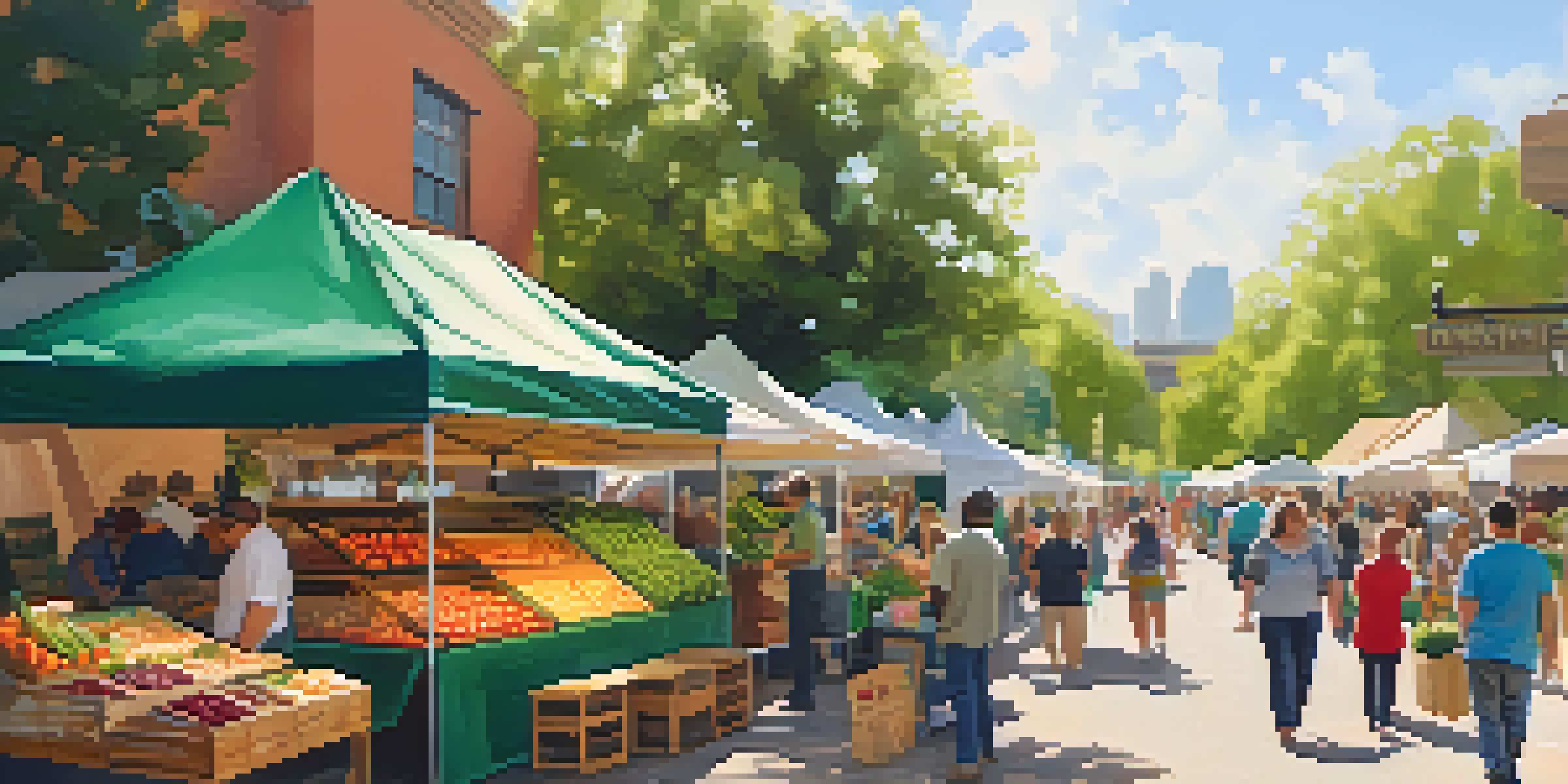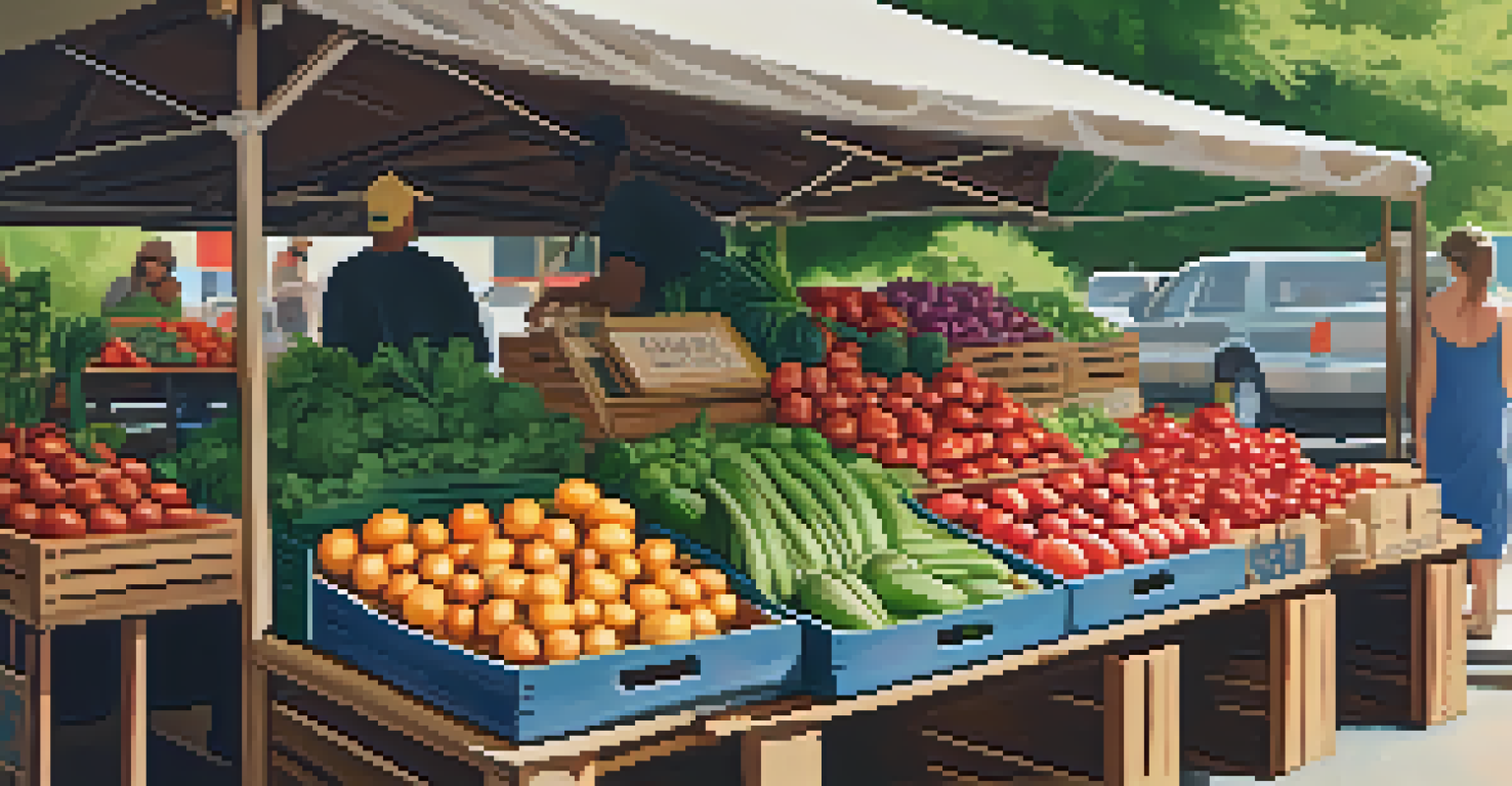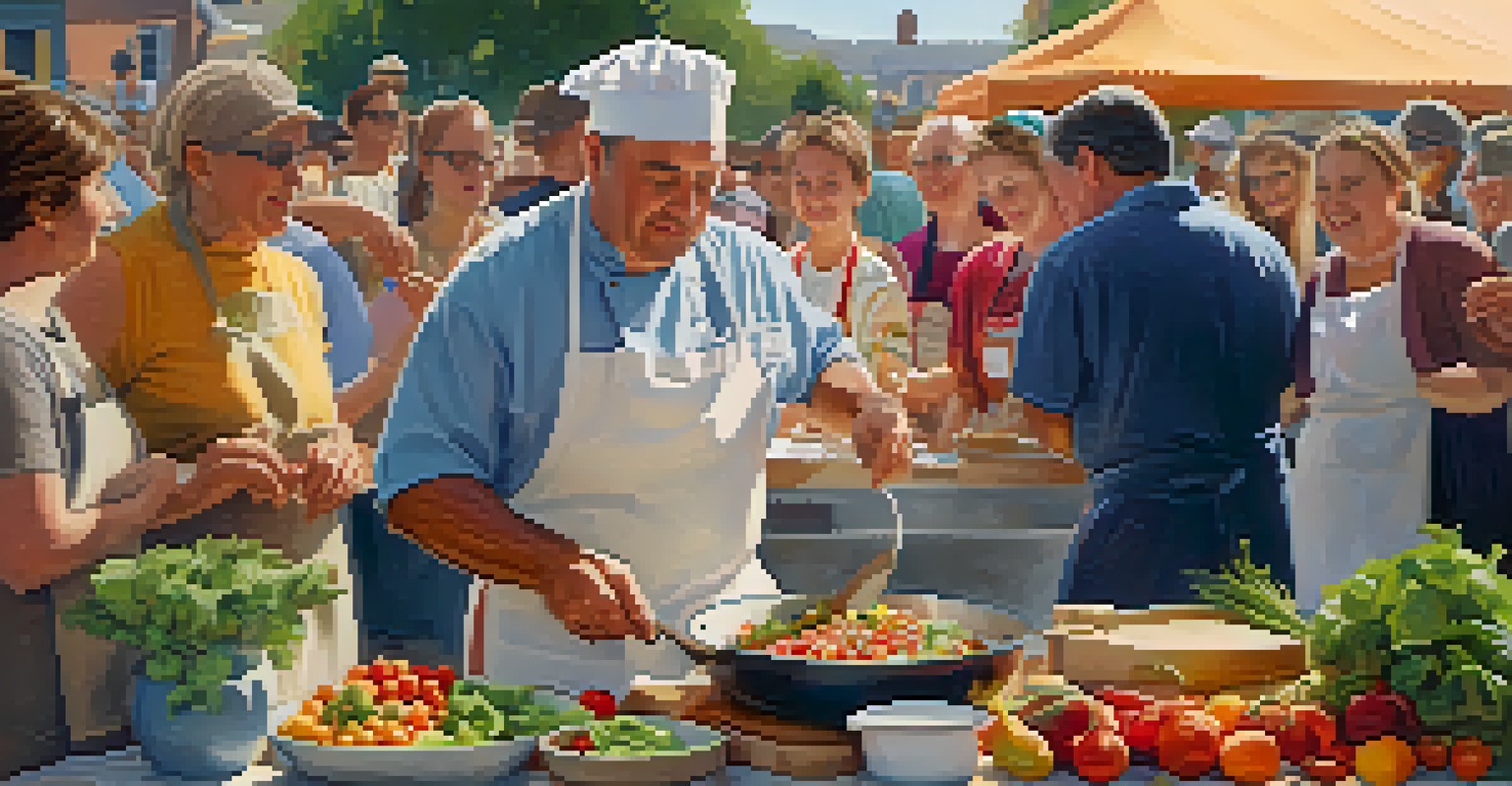The Role of Farmers' Markets in Austin's Craft Food Movement

Farmers' Markets: The Heart of Austin's Food Culture
Farmers' markets in Austin serve as vibrant hubs where community and food intersect. These markets not only provide fresh produce but also foster connections between local farmers and consumers. The atmosphere is often lively, with the sounds of laughter and the aroma of fresh goods filling the air, creating an inviting space for everyone.
Eating locally is not just a trend; it’s a move towards sustainability, community support, and healthier choices.
Beyond just food, these markets reflect Austin's unique culture, celebrating local traditions and diverse culinary influences. Whether it’s a taco stand or artisanal bread, each stall tells a story about the people behind the food. This sense of place is integral to understanding why these markets are beloved by locals and visitors alike.
As a centerpiece of the craft food movement, farmers' markets empower consumers to make informed choices about their food sources. They encourage a farm-to-table philosophy that not only supports local economies but also promotes sustainability. This growing awareness around food origins has spurred a wider appreciation for quality ingredients.
Supporting Local Farmers and Artisans
One of the primary roles of farmers' markets is to create a direct link between local farmers and consumers. By purchasing directly from growers, shoppers can enjoy fresher produce while supporting the livelihoods of those who cultivate it. This relationship fosters a sense of community and trust that larger grocery chains often lack.

Moreover, the markets provide a platform for artisans and small-scale producers to showcase their creations. From handmade cheeses to organic jams, these vendors often struggle to find retail space elsewhere. Farmers' markets offer a welcoming environment where they can share their passion and connect with customers who appreciate their craftsmanship.
Community Connections Thrive Here
Farmers' markets in Austin foster a sense of belonging and community by providing a space for locals to gather and connect over food.
This support extends beyond just food; it also promotes sustainable practices. Many local farmers prioritize organic and regenerative techniques, which benefit the environment and the health of the community. By choosing to shop at these markets, consumers are making a conscious choice to prioritize sustainability.
Fostering a Sense of Community and Connection
Farmers' markets are more than just a place to buy food; they are social gatherings that foster community connections. Visitors often run into friends and neighbors, creating a sense of belonging that enhances the overall experience. This community spirit is palpable, making shopping feel like a celebration rather than a chore.
Farmers’ markets are essential for nurturing not just our bodies, but also our communities and the environment.
Events and activities hosted at farmers' markets, such as cooking demonstrations or live music, further enrich this communal atmosphere. These gatherings invite people to engage with food in a fun and interactive way, encouraging them to try new things and learn more about what they consume. It’s about bringing people together through shared experiences.
Moreover, the inclusive nature of these markets allows for diverse voices and stories to be shared. This sense of belonging is especially important in a city like Austin, known for its eclectic mix of cultures. Farmers' markets embody this diversity, showcasing everything from traditional Texan recipes to international cuisines.
Encouraging Healthy Eating Habits
One of the significant advantages of farmers' markets is their role in promoting healthy eating habits. With an abundance of fresh fruits and vegetables available, shoppers are more likely to make healthier choices. This accessibility to wholesome food options can lead to improved diets and overall well-being.
Additionally, many farmers' markets emphasize education about nutrition and cooking. Vendors often share tips on how to prepare seasonal produce or provide recipes that highlight their products. This hands-on approach not only makes healthy eating more approachable but also encourages creativity in the kitchen.
Support for Local Producers
These markets create direct relationships between consumers and local farmers, promoting sustainable practices and supporting small-scale artisans.
As people become more aware of the benefits of eating locally and seasonally, the impact on public health becomes evident. Communities that prioritize fresh, local food often see lower rates of diet-related illnesses. Farmers' markets play a crucial role in this shift toward healthier lifestyles.
Promoting Sustainability and Environmental Awareness
Sustainability is at the core of the farmers' market philosophy. By sourcing food locally, these markets significantly reduce the carbon footprint associated with transporting goods over long distances. This eco-friendly approach resonates with many consumers who are increasingly concerned about climate change and its impact on agriculture.
Moreover, many vendors practice sustainable farming techniques that protect the land and promote biodiversity. This commitment to the environment fosters a culture of awareness among shoppers, encouraging them to consider the ecological impact of their food choices. It’s about making informed decisions that benefit the planet.
As consumers become more educated about sustainable practices, farmers' markets serve as a valuable resource for information. They offer insights into how food is grown and the importance of supporting sustainable agricultural methods. This ongoing conversation is essential for fostering a more environmentally conscious community.
The Impact of Technology on Farmers' Markets
In recent years, technology has started to play a significant role in the operations of farmers' markets. Social media platforms allow vendors to connect with customers, share updates, and promote special events. This online presence enhances visibility and engagement, bridging the gap between physical and digital interactions.
Additionally, apps and websites dedicated to local food sources help consumers locate farmers' markets and learn about participating vendors. This ease of access encourages more people to explore these markets, increasing foot traffic and sales for local farmers. Technology, when used thoughtfully, can enhance the market experience for everyone involved.
Encouraging Healthy Eating Choices
With an abundance of fresh produce and educational resources, farmers' markets encourage healthier eating habits and improved public health.
As we navigate an increasingly digital world, the blend of technology and traditional market experiences creates a unique opportunity for growth. Farmers' markets can harness these tools to educate consumers, promote their products, and foster community ties. Adapting to new trends while maintaining their core values is essential for their continued success.
The Future of Farmers' Markets in Austin
Looking ahead, the future of farmers' markets in Austin appears promising as the demand for local, sustainable food continues to grow. With increasing awareness of food sourcing, more people are seeking out these markets for both quality and community connection. This trend bodes well for the ongoing success of local farmers and artisans.
However, challenges remain, particularly in terms of competition with larger food retailers and changing consumer habits. Farmers' markets will need to adapt by innovating their offerings and enhancing the shopping experience. This could include expanding product ranges or incorporating more educational components.

Ultimately, the resilience and adaptability of Austin's farmers' markets will play a crucial role in their future. As they continue to evolve, they will remain vital to the city's craft food movement, championing local producers and fostering a strong sense of community.